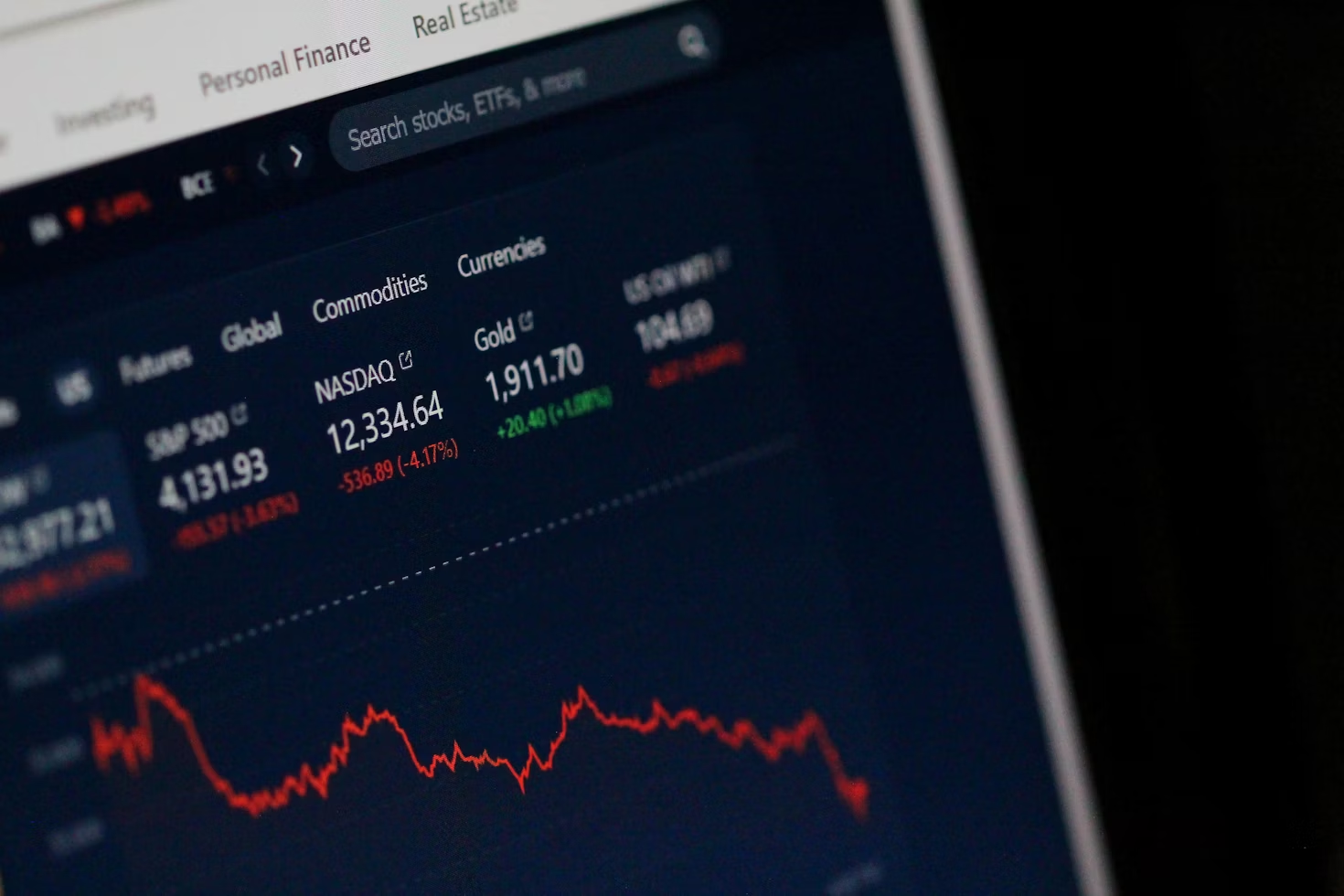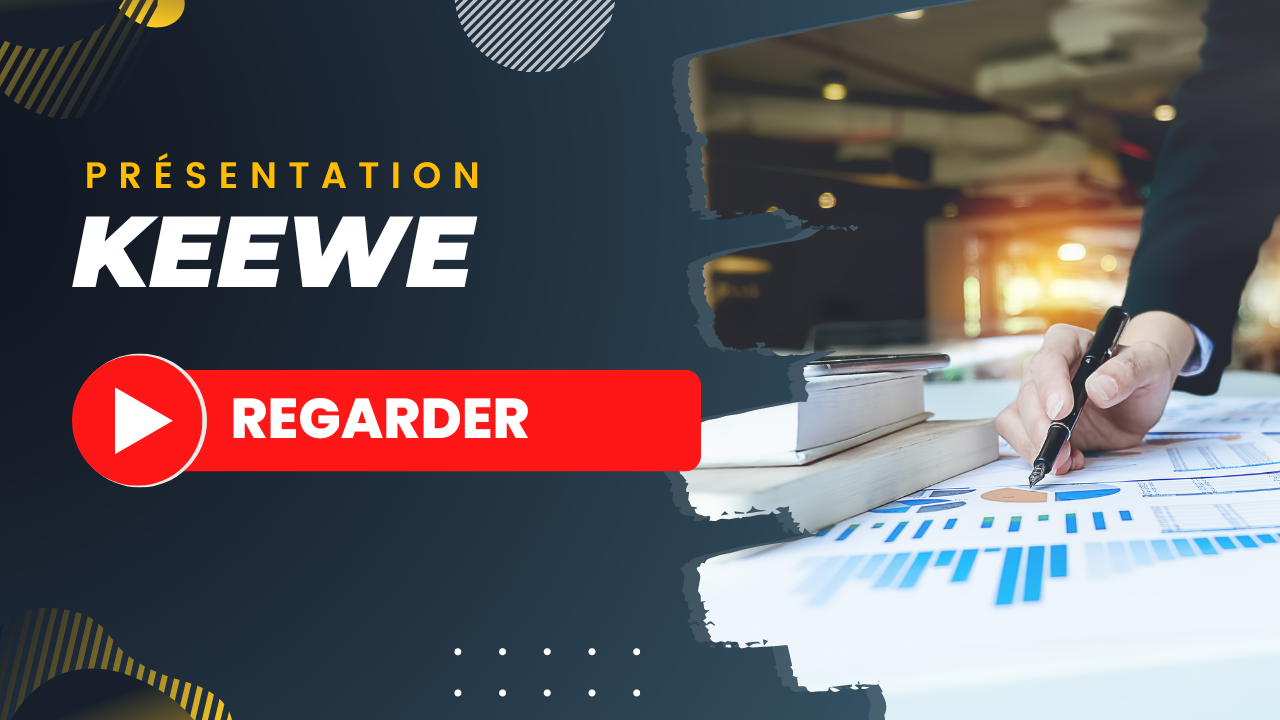Forex for beginners: everything you need to know about currency exchange

Introduction: Forex, a mystery to be demystified
Do you think foreign currencies are a headache? Think again, Forex can become your ally and turn your international payments into opportunities! Forex, or foreign exchange market, is the place where currencies are traded — euros, dollars, yen, pesos — 24/7, around the world. With 5.1 trillion dollars traded daily, according to the Bank for International Settlements, it is the vibrant pulse of international trade.
For a beginning French SME exporting cheese to the United States, importing parts from Asia or selling IT services in Australia, Forex is essential. But why do exchange rates seem so daunting, and how do you approach them without stress?
This article guides you step-by-step to understand currency exchange, secure your cash flow and adopt a sustainable approach — with a touch of sustainability for a positive impact, thanks to Keewe.
What is Forex? The basics for beginners
Forex, or “Foreign Exchange”, is the global market where currencies are traded, such as the euro (EUR), such as the euro (EUR) against the American dollar (USD), the Japanese yen (JPY), or the Mexican peso (MXN). Imagine an SME that sells IT services to Australia: it receives Australian dollars (EUR), which it must convert into euros to pay its bills. This process takes place on Forex, a gigantic market that is active 24/7, covering all time zones, from Tokyo to New York, to London.
But how does it work? Exchange rates — for example, 1 EUR = 1.05 USD — vary constantly, influenced by supply and demand, monetary policies (such as a rise in ECB or Fed rates), the global economy, or geopolitical tensions. If the ECB increases its rates, the euro may strengthen, making 1 EUR = 1.08 USD, which makes your exports to the United States more competitive, but your imports more expensive.
According to the Bank for International Settlements, 5.1 trillion dollars transit every day, dominated by key currency pairs: EUR/USD (23%), USD/JPY (13%), GBP/USD (11%), GBP/USD (11%), according to 2022 statistics. For a starting SME, these numbers can be impressive, but with the right foundations, Forex becomes clear and accessible.
For what purposes is Forex used?
Forex is not just a market for trading currencies — it plays a central role in many areas for businesses and individuals. Here are, in a logical and clear sequence, its main uses, explained simply for you:
- Facilitating international trade : SMEs and ETIs buy or sell currencies to pay their foreign suppliers or receive payments, while optimizing exchange rates.
- Managing currency risk : Currency variations can impact your margins. A beginning SME can monitor the EUR/USD to avoid losses on a deferred payment, for example by paying quickly if it expects a fall. An ETI follows the GBP/EUR to limit the risks on its exports to the United Kingdom, even without advanced tools such as contracts (reserved for experts).
- Investing and trading : Investors and traders speculate on currencies to take advantage of variations, buying USD at 1.05 EUR/USD to sell at 1.10, for example. But be careful: 88% of Forex transactions are speculative, according to the carousel, often via complex strategies such as leverage, which are not very suitable for beginners.
- Banking and institutional transactions : Banks convert currencies to finance global transactions, manage national reserves, or secure payments. For example, a French bank changes 1 million EUR into JPY for an international loan, or an ETI uses Forex to stabilize its reserves in USD.
- Payments and tourism : Individuals and businesses exchange currencies to pay abroad, limit bank fees or optimize transactions. An SME sends an employee to the United States, exchanging 5,000 EUR in USD at 1.05 USD (5,250 USD), avoiding high fees, while an individual goes on vacation to Japan and converts 2,000 EUR into JPY at 160 JPY/EUR (320,000 JPY).
These uses show that Forex is everywhere — and vital for getting started in international trade, even without expertise.
Why is Forex relevant to your business?
If you are starting out internationally, Forex affects your finances directly. A French SME paying 10,000 USD to an American supplier sees its cost vary: 9,524€ to 1.05 EUR/USD, 10,000€ to 1.00 (loss of 476€), or 9,091€ to 1.10 (gain of 433€). These fluctuations, even small ones, affect your cash flow and competitiveness.
For an ETI exporting machines to China, a payment of 1 million CNY at 0.13 EUR/CNY (130,000€) can become 135,000€ if the yuan rises to 0.135, or 125,000€ if the rate falls to 0.125 — a difference of 10,000€.
According to Eurostat, 60% of novice European SMEs suffer Forex losses, especially on currencies such as the South African rand (ZAR, volatility of 12% in 2023, Selonxe.com), or the Mexican peso (MXN, 10% in 2022), or the Mexican peso (MXN, 10% in 2022). Whether you are importing goods, exporting services, or receiving payments, Forex is a reality that must be mastered in order to succeed.
Forex challenges for beginners
Forex may seem daunting for newbies, but these challenges are surmountable. Here are the main obstacles:
- Volatility : Rates are changing rapidly. In 2023, the EUR/USD varied between 1.05 and 1.12, according to Bloomberg, impacting your costs or revenues. An SME paying 100,000 USD at 1.05 (95,238€) could pay 92,593€ at 1.08 — or 100,000€ at 1.00, losing 4,762€.
- Hidden fees : Banks add margins of 2 to 5%, according to the World Bank, on your conversions. For 50,000 USD, this can represent 1,000 to 2,500 euros in unexpected, often hidden costs.
- Complexity : Managing exotic currencies (e.g. Mexican Peso, MXN) or tracking rates requires time and tools, which can be confusing without experience.
- Forgotten ecological impact : Each international payment has a carbon footprint (Scope 3), linked to servers, banking networks and logistics. Newbies often ignore this impact, but it is becoming crucial for your CSR image and your environmentally sensitive customers.
These challenges are not insurmountable. With the right advice, you can turn them into an opportunity — and even a sustainable act.
How to get started with Forex for your business
Don't worry, Forex is accessible to beginners! Here are simple steps to get started:
- Follow the rates : Use free tools like XE.com or Bloomberg to monitor EUR/USD, GBP/EUR, or ZAR. An SME saved €500 on a 10,000 USD transfer by expecting a fall of 5% in 2024, by paying before the EUR/USD went from 1.05 to 1.00.
- Choose reliable partners : Avoid banks with hidden fees. Choose transparent fintechs, like Keewe, for your payments, with clear and competitive rates.
- Avoid delays : Pay quickly to limit the risk of volatility. For example, a 30-day deferred payment out of $100,000 may cost $4,762 if the EUR/USD changes from 1.05 to 1.00, but only $2,381 if you pay at 1.07.
- Integrate sustainability : Measure the carbon impact of your payments with Green FX for a responsible approach, aligned with your CSR customers. An SME reduced its carbon footprint by 5 tCO2e out of €50,000 in 2024, while optimizing its costs.
These bases make Forex an ally, not an enemy. An SME reduced its Forex costs by 15% and improved its green image by following these tips.
Keewe: Your Forex ally for beginners
At Keewe, we make Forex easy for newbies. With over 100 accessible currencies, competitive rates with no hidden fees, and our human FX desk, ask your questions, get clear answers — real people are there for you. Our tools optimize your international payments in real time, to manage EUR/USD, ZAR or MXN with confidence.
With Green FX, each transaction becomes a sustainable act: we measure its carbon footprint (Scope 3) and donate 15% of our income to finance sustainable projects — for example, 7.5 TCO2eoffset on a transfer of €50,000. An SME reduced its Forex costs by 20%, offset 5 tCO2e and simplified its exchanges with Keewe in 2024, while strengthening its CSR.
For the more advanced, we offer futures contracts (forward contract, forward contract, future contract, future contract example, future contract example) to secure your rates, but start with the basics today!
Conclusion: Become master of your currencies
Forex is no mystery — it's an opportunity for your international payments, exports, and imports. By understanding its uses, monitoring its rates, avoiding hidden costs, avoiding delays and integrating sustainability, you secure your cash flow, build a responsible business and gain competitiveness.
With 60% of novice SMEs affected by Forex losses, act now. Start with Keewe on www.keewe.eu —simplify your currencies, protect your margins and take action for the planet, simply and effectively!







